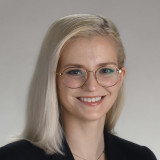As my time as a resident has been rapidly coming to a close, I’ve been trying to cross all the tasks off my to-do list before I graduate and move. Night out at the local ‘70s-themed dive bar? Check. Return all the scrubs that have taken up residence in my home and car? Check. Get disability insurance? Check.
Over and over throughout the years, I’ve gotten so many emails and talks about the importance of disability insurance for physicians and all of the intricacies of wording and riders and types of benefit. The specter of suddenly diminished income looms large, and cautionary tales about financial ruin and mortgage default are whispered like an incantation summoning evil spirits. The chances of being unable to work, however small, are deemed so high risk that it’s worth shelling out hundreds of dollars a month in insurance premiums.
It has made me think, however, about the other ways we as health care workers look at risk and reward on a daily basis. When I book flights for vacations or conferences, I certainly make sure there is a plan B in case I miss a connection or something gets canceled, as it would spell certain doom if my return was unexpectedly delayed on a day I had patients waiting and surgeries scheduled. Yet I go full throttle on those same trips, packing in everything I can and jumping at the chance to travel because the opportunity comes so seldomly.
The entire process of medical training is a tightrope act as well. Once we’re in medical school, we often incur enormous debt that would be almost impossible to pay off without the large paycheck promised seven-plus years down the road. The residency Match is a roll of the dice, where your professional future is dependent upon an algorithm and impressions made on interview day. Once you have chosen this life, you are all in; detours can be financially stressful, and we are often too overtrained and overspecialized to easily transition to another career, if medicine doesn’t work out.
But things that a person outside of medicine may deem unacceptably high risk are viewed as commonplace in medicine and not given a second thought. Exposure to body fluids and infectious disease is a daily occurrence (not to mention the COVID-19 pandemic), and razor sharp instruments rapidly pass between various people’s hands in the OR. Residents and attendings alike show up to challenging jobs on sometimes little to no sleep. Pregnant women work overnight shifts and stand for hours while literally in the early stages of labor. We wager metaphorical bets that no emergencies will pop up at 4:55 p.m., keeping us from making it to dinner plans or children’s recitals.
Perhaps our scales of judgment are skewed by our medical knowledge and experience. After seeing disfiguring cancer after disfiguring cancer related to tobacco use, I will never smoke a day in my life. But when the chain dentistry clinic tries to upsell me on a special light screening for oral cavity cancer for the low, low price of $200, I have no patience for their scare tactics. I’ve gotten chiding looks from other ENTs for having an ear cartilage piercing after they’ve forbidden their own children from getting them due to the risk of infection. I still often wear a mask in clinic, even though the mandates are long since over, because my work involves getting sneezed and coughed on on a semiregular basis. I’ve routinely eaten food that has been left out of the fridge for far too long because the chances of being interrupted by a page telling me the patient is in the OR while waiting in line for fresher fare feels like a certainty.
Yet year after year the competition to start on this path remains high. The gamble is worth it.
This profession has made me both bolder and more cautious in equal measure, confident in my ability to handle almost anything, but well aware of my limitations and shortcomings. It has molded the way I look at the world and how I make choices at work and at home. The risks may be many but so are the rewards, and I wouldn’t have it any other way.
What approaches do you employ for balancing risk and reward in medicine? Join the conversation below.
Heather is the inaugural Facial Plastic and Reconstructive Surgery fellow at Penn State. Her clinical interests include patient communication, medical education, facial reanimation, and complex reconstructive surgery. Heather was a Doximity Op-Med Fellow in 2021-2022 and 2022-2023, and is a 2023-2024 Doximity Op-Med Fellow.
Image by Alexey Yaremenko / Getty Images







